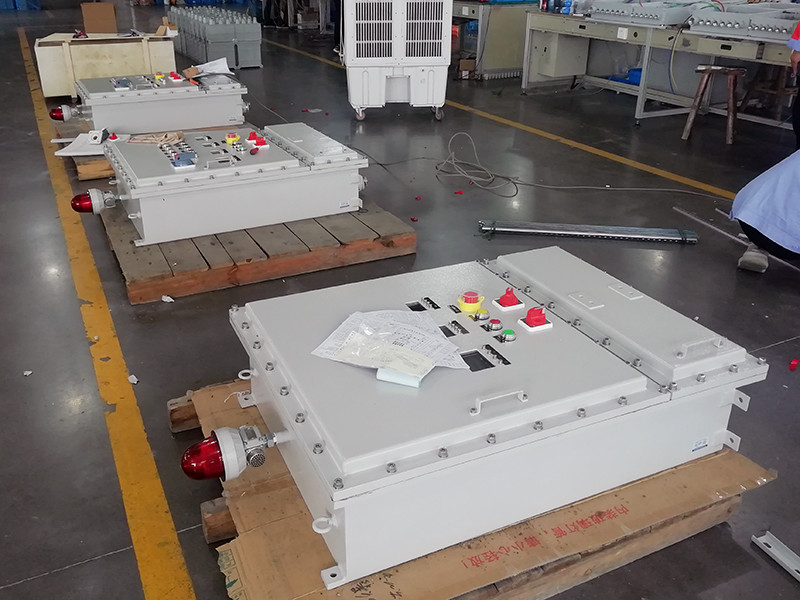E rave rahi taata aita paha ratou i ite e, eaha te mau matini uira e tere na ni'a i te manureva, eaha te mau huru e faaohipahia no te, e e mea nahea te reira i te taa-ê-raa i te mau tauihaa uira tamau. No te tauturu i te mau taata atoa ia maramarama maitai a'e i te taa-ê-raa i rotopu i te mau matini uira e te mau matini uira, e horo'a'tu vau i te hoê omuaraa parau poto:

Definition:
Explosion-proof electrical equipment refers to electrical components, Te mau nota, and devices designed based on explosion-proof principles for use in environments with explosive hazards. These devices control and regulate electrical equipment and power supply lines to ensure their normal operation. Ei hi'oraa, they are used in applications like coal mining, Te mau nota, offshore oil, petrochemicals, and chemical industries.
In locations with Te mau mana'o tauturu no te gases and vapors, specific electrical equipment is used. In chemical industry production, various explosive gases and vapors are commonly encountered. I roto i teie mau huru tupuraa, selecting the appropriate Te mau matini uira e tere na ni'a i te manureva according to relevant codes, te mau faatureraa, and regulations is crucial to prevent explosions of surrounding explosive mixtures. This is an important measure for ensuring safe production and preventing explosions and fires. Te rahiraa o te taime, explosion-proof electrical devices are marked with necessary explosion-proof labels and technical parameters to avoid misuse.
Te hoo:
In terms of price, explosion-proof electrical equipment is typically two to three times more expensive than standard electrical devices. Many customers do not understand this, and I must clarify that explosion-proof equipment should not be compared in price with regular electrical devices as there is no basis for comparison.
The selection of explosion-proof electrical equipment is stringent, with high requirements for internal components. Generally made with aluminum casings, these devices demand high-quality components. The production and component costs of explosion-proof equipment are significantly higher, making their prices steeper. In industries like chemicals, Te mau mana'o tauturu no te, and petroleum, explosion-proof equipment is essential for safe production. Opting for cheaper alternatives can pose safety risks to the facility and harm individuals.
No reira, when choosing explosion-proof electrical products, one should not solely focus on price; quality is more critical for these products.

